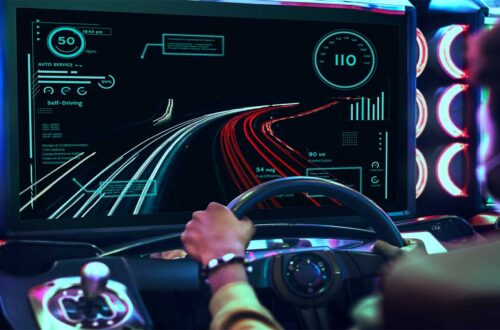The automotive industry is undergoing a seismic transformation, driven by technological advancements and a growing focus on sustainability. From electric vehicles (EVs) to autonomous driving, the innovations shaping the future of transportation are not just exciting—they are revolutionizing how we think about mobility. This article explores the cutting-edge trends that are steering the automotive world into a new era.
The Electric Revolution
Electric vehicles are no longer a niche segment. With governments around the globe setting ambitious goals to reduce carbon emissions, automakers are investing heavily in EV technology. Companies like Tesla, Rivian, and legacy brands such as Ford and Volkswagen are racing to develop electric models that cater to diverse markets. Advancements in battery technology, including solid-state batteries, are improving energy density and reducing charging times, making EVs more practical and accessible.
Additionally, the development of robust charging infrastructure is key to widespread EV adoption. Charging networks like Electrify America and Ionity are expanding rapidly, aiming to eliminate range anxiety and make EV ownership seamless. Innovations like wireless charging pads and ultra-fast chargers are also in the pipeline, promising greater convenience for drivers.
Autonomous Driving: Redefining Mobility
Self-driving cars have long been a futuristic dream, but they are becoming a reality. Autonomous vehicles (AVs) are poised to redefine transportation, offering increased safety and efficiency. Companies like Waymo, Cruise, and Tesla are testing AVs in urban environments, pushing the boundaries of what’s possible with artificial intelligence (AI) and machine learning.
Advanced driver-assistance systems (ADAS) already provide features such as lane-keeping assistance, adaptive cruise control, and automated parking. The next step is achieving Level 5 autonomy—fully driverless vehicles. While regulatory and ethical challenges remain, the potential benefits include reduced traffic accidents, enhanced accessibility for individuals with disabilities, and optimized urban planning.
Connectivity and Smart Cars
Modern vehicles are becoming smarter and more connected. The integration of Internet of Things (IoT) technology allows cars to communicate with each other and with infrastructure, paving the way for a connected ecosystem. Features like over-the-air software updates, real-time traffic monitoring, and predictive maintenance are becoming standard.
In-car entertainment and user interfaces are also evolving. Voice-controlled assistants, augmented reality (AR) heads-up displays, and personalized driving experiences are reshaping how drivers interact with their vehicles. These technologies not only enhance convenience but also prioritize safety by minimizing distractions.
Sustainability and Alternative Fuels
As the world prioritizes sustainability, the automotive industry is exploring alternative fuels like hydrogen and biofuels. Hydrogen fuel cell vehicles (FCVs) offer a promising solution for long-range, zero-emission driving. Toyota and Hyundai are among the leaders in this space, working to improve fuel cell efficiency and reduce costs.
Moreover, circular manufacturing practices, such as recycling batteries and using eco-friendly materials, are gaining traction. Automakers are adopting sustainable practices throughout the supply chain to reduce their environmental footprint.
Conclusion
The future of automotive technology is not just about creating faster or more luxurious cars; it’s about reimagining transportation as a whole. With advancements in electrification, autonomy, connectivity, and sustainability, the road ahead is filled with possibilities. As these innovations continue to evolve, they promise to make mobility safer, greener, and more efficient for everyone. The journey has just begun, and the automotive industry is revving up for a thrilling ride into the future.
Share this content:



